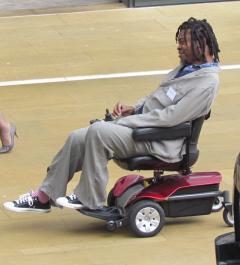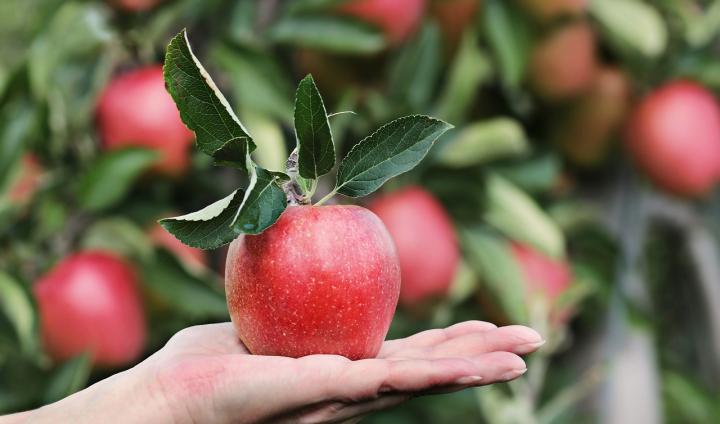Thanksgiving Series: Being Grateful for Things We Did Not Want.
This week's blog post has been created by University Chaplain, Harriet Harris.
It might not occur to us to be grateful for things we really didn’t want in our lives, such things as a chronic illness, a ‘frenemy’ who plays havoc with our emotions, school grades below what we feel we deserved, significant losses or traumas, or a pandemic upending the world.
However, if we pay attention to what goes on when we are stricken by such challenges, wounds, and disappointments, we can experience from these ‘curses’ some unexpected ‘blessings’.
Gratitude is a practice, and we do not always want to do it. But practising gratitude attunes us to noticing what can come from desperately difficult circumstances, and it hones our intuition.
There is a New Testament teaching that generates a lot of discussion and exploration, because it is perplexing and often triggering for us. The teaching is this: ‘Rejoice always, pray constantly, give thanks in all circumstances’ (1 Thessalonians 5.17-18).
In her book The Hiding Place, Corrie Ten Boom, tells her own story of grappling with this teaching, whist imprisoned in Ravensbrück Concentration Camp; the largest concentration camp for women in Nazi Germany. https://historydaily.org/ravensbruck-concentration-camp
Corrie and her sister Betsie were political prisoners from the Netherlands, arrested for hiding and protecting Jews. In their barracks, nauseated by the reeking straw mattresses, they asked one another how they could endure the squalid, cramped conditions. Betsie said she believed the clue was in the instruction to ‘give thanks in all circumstances’. She gave thanks that she and Corrie had been assigned to the same barracks, and that the over-crowding meant they could talk closely with inmates. The most triggering moment for Corrie, who had just been bitten by fleas and found this the last straw, was that Betsie then thanked God for the fleas.
Sometime later, Betsie discovered that guards refused to enter their barracks. When Betsie asked why, a guard said, ‘Because the place is crawling with fleas!’. The fleas, unwelcome as they were in those barracks, afforded the inmates relative freedom from the attention and punishment of concentration camp guards.
Corrie did not relish being prompted to practise gratitude, given that her circumstances were so appalling. But she undertook gratitude as a discipline (as something that shapes us), and thereby came to realise that her setting was one in which fleas brought benefit. Later, bereft by her sister Betsie’s death in the camp, Corrie expressed gratitude that Betsie did not have to endure the on-going suffering of camp existence.

Another person who comes strongly to mind when thinking about gratitude for things we didn’t want, is the Nigerian-British artist, Yinka Shonibare. He contracted transverse myelitis, aged 18, which paralysed one side of his body. He says that the two things about him that are supposedly ‘bad’ – his race and his disability – have become his greatest assets. Who better than an installation artist to shape such an attitude in the physical world? https://www.royalacademy.org.uk/art-artists/work-of-art/cheeky-little-astronomer
In order to be shaped by gratitude, we want not just to ‘give thanks’, or ‘count our blessings’, as an exercise we do only in our minds. We want to steep ourselves in the experience.
Admittedly, this a stretch, when thinking about things we do not want. What might basking in thankfulness for unwanted circumstances look like in a university context?
One of the most challenging things in academic environments is fear of looking stupid. That people might think you are stupid feels intolerable. I wonder how many hours sleep have been lost to this fear, amongst students and perhaps even more so amongst teaching and research staff. How might it pan out if, instead of anxiously ruminating over whether we have shown ourselves up, we feel gratitude for our awareness that we don’t know it all?
We could then be the one prepared to ask the questions that everyone wishes they had the guts to ask. Often the simplest questions are the most devastating, like the child who asked ‘Why is the Emperor wearing no clothes?’ We could show the virtue of humility, which is a crucial intellectual virtue that furthers both civility and our quest for understanding, and we can model this virtue for others. If we are prepared to be vulnerably ‘stupid’, we are a friend to everyone who does not understand, or who does not feel confident, or who fears that exposure might be the end of the world.
If we can fall and get up again, we show others (and also ourselves) that a fall is not a big deal. In fact, a fall gives us practice in falling and getting up! Moreover, a fall can call in the support of others, and so be the very thing that helps us to realise we are not alone. What a discovery – to learn that we are not on our own! We also give others the gift of being of assistance, which is meaningful and gratifying for them. Practising gratitude hones our awareness of, and our intuition for, such unanticipated ‘blessings’.
The following prayer was found on a scrap of paper in the clothing of a Jewish girl at Ravensbrück concentration camp. We don’t know if the girl had any connection with Corrie Ten Boom’s circle, but she steeped herself in gratitude for the virtues and camaraderie that she and her sister-prisoners developed under oppression. The girl could have, understandably and justifiably, harboured bitterness, which, for all its ‘rightness’ would have consumed her. Instead, she moves from gratitude to a mercy that is literally beyond this world:
“O Lord, remember not only the men and women of good will but also those of ill will. But do not remember all the suffering they have inflicted upon us; remember the fruits we bought, thanks to this suffering, our comradeship, our loyalty, our humility, the courage, the generosity, the greatness of heart which has grown out of this; and when they come to judgement, let all the fruits that we have borne be their forgiveness.”


